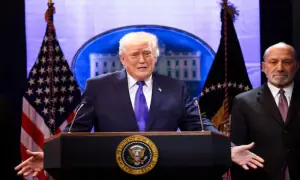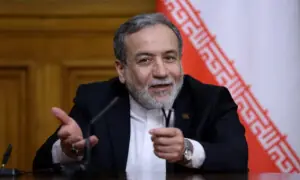Israel attempts to influence UK’s court, says report
3 min readIsraeli embassy officials have attempted to get the attorney general’s office to intervene in the UK case relating to the prosecution of protesters, reported The Guardian.
The papers, The Guardian, obtained by a freedom of information indicate that the embassy officials pressed for the director general of the attorney general’s office, Douglas Wilson, to interfere in cases related to protests on UK soil.
The documents do not state what Israeli officials exactly requested. It has been heavily redacted. But the email sent by Wilson to embassy representatives after the meeting stated: “As we noted … the CPS [Crown Prosecution Service] makes its prosecution decisions and manages its casework independently.”
It added: “The law officers are unable to intervene on an individual case or comment on issues related to active proceedings.”
The meeting’s minutes similarly refer to Wilson “noting the operational independence of the CPS and the sensitivities of engaging with them on individual cases”.
Wilson’s emails, from May last year, also informed the official about the royal assent of the controversial Police, Crime, Courts and Sentencing Act which introduced onerous restrictions on protest and the attorney general’s referral of the Colston statue protest case to the court appeal.
The referral led judges to the decision which said that the protesters accused of “significant” criminal damage could not rely on human rights defences when on trial.
Responding to the Freedom of Information request, the AGO justified the redactions, saying that disclosure “would be likely to prejudice the UK’s relations with Israel”.
Palestine Action is an activist group that targets the UK factories of Israeli weapons manufacturer Elbit System.
After the Colston court of appeal decision, Palestine Action activists have been convicted like environmental protesters in similar cases to those they had been acquitted of in the past with human rights defences.
Palestine Action’s lawyer, Lydia Dagostino, the director of Kellys solicitors, said: “The disclosure raises a number of questions, not least whether this meeting was about the direct action group Palestine Action. There clearly needs to be further investigations as to the extent to which there’s been any attempt by any representatives from the Israeli embassy to influence cases involving activists.”
In response, Wilson explained the procedure around issuing private arrest warrants have been tightened, with the director of public prosecution’s consent now required.
He also advised that it was possible to apply to the Foreign, Commonwealth and Development Office for “special mission immunity”, a rarely used status, previously granted to Livni, which confers immunity from prosecution for “a temporary mission, representing a state”.
An Israeli embassy spokesperson said it respects the independence of the British judicial system and said: “Under no circumstances would interfere in UK legal proceedings”. They added: “As part of its ongoing work, the Embassy of Israel raises awareness on severe attacks against entities related to Israel.
“Furthermore, it is the duty of the embassies of Israel around the world, including in the UK, to care for and provide assistance to Israelis wherever they are.”
For the latest news, follow us on Twitter @Aaj_Urdu. We are also on Facebook, Instagram and YouTube.
























Comments are closed on this story.